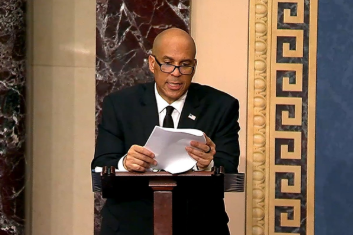April has historically been a month filled with testing and test prep—especially for juniors. Not only do they have to prepare for AP exams along with all of the other classes, but must also worry about the SAT, ACT WorkKeys, and M-STEP. That’s a huge workload which adds a ton of pressure to 11th graders.
In light of that, some changes have been made to the testing schedule this year as opposed to previous years in hopes that it will relieve some of the stress juniors face. However, many juniors are still struggling to prepare for these exams.
Last year, the current seniors faced a grueling test schedule consisting of one and a half full school days of uninterrupted—save for lunch—standardized tests.
The first day, Thursday, April 11th, was reserved for ACT WorkKeys before lunch and M-STEP after lunch. Though officially the day was set to end at 2:30 in the afternoon, students were allowed to leave as soon as they finished the M-STEP. This combined with the fact that the M-STEP offered no direct benefit to students themselves caused many to push through the test at breakneck speeds without much real effort.
At lunch, students discussed “click-click-clicking” through the test in order to be out of school as fast as possible. Though some, like Peter McAllister, reportedly gave the M-STEP genuine thought, a great many had an experience more like Michael Sutton’s.
“I genuinely didn’t try… It was after a long day of taking ACTs and stuff like that,” said Sutton. He also cited the fact that students were allowed to leave as soon as they finished the M-STEP which didn’t exactly encourage great amounts of effort.
In response to feedback from last year’s junior class, administration realized that it may be smart to make some schedule adjustments going forward.
“It was a really long day for juniors to have to do ACT and then M-STEP. We wanted to avoid what we call testing fatigue,” Mrs. Hrycaj, who, in addition to physics, does a lot of work with test preparation and administration, explained.
Additionally, Dr. Clark, who runs most school-wide testing initiatives, mentioned the importance of giving juniors a “better opportunity to improve their scores.”
Not only would this be helpful to students’ personal success, but improved overall scores also give the school district a boost in status. According to Dr. Clark, “the better scores you have, the better a school is perceived.”
Though this may seem selfish of the district, greater perceptions really do benefit everybody. Schools use standardized tests like the M-STEP to reflect on content they may need to do a better job teaching which improves education for rising students. Though a different schedule may encourage improved scores, the real defining factor is the students themselves.

As is to be expected, there is a pretty vast spectrum for how ready students are feeling for the fast-approaching test dates. While some juniors like Noam Shlagman have already started studying for the SAT using methods like Khan Academy and practice tests, others such as Daniel Kim haven’t quite gotten there yet. However, in the next week, most students report an expectation to either start or continue preparations for the SAT.
The M-STEP and ACT WorkKeys are another story, however. Students’ effort levels on the two that don’t directly affect college admissions seem to be on a one-or-the-other basis.
“I was planning to try on the ACT…I don’t know about the M-STEP…I’ll try a little bit,” said junior Sela Kubiak.
Contrastly, Kim said he would care a minimal amount about the ACT but he would actually put some effort into the M-STEP.
Though they might not be prepared to put any more work into the ACT WorkKeys and M-STEP than last year’s test takers, the current juniors generally feel that the new schedule will be more beneficial for scores. It’s important to remember that the main reason for altering the schedule was, in fact, to lower student stress levels. This is not lost on juniors who are feeling appreciation for the changes made. Shlagman expressed his feelings on the schedule adjustments, stating, “I feel like this is nicer because it’s more spaced out—less stressful.”
Hope is not lost for the betterment of students’ mental health and test scores thanks to administrative decisions made by the testing staff including Dr. Clark and Mrs. Hrycaj. Through this initiative, WBHS administration has proven that they really do value students and the feedback they bring to the table. Regardless of whether the schedule alteration actually does what it’s meant to, students can appreciate these wonderful staff members who cared enough to try.


















